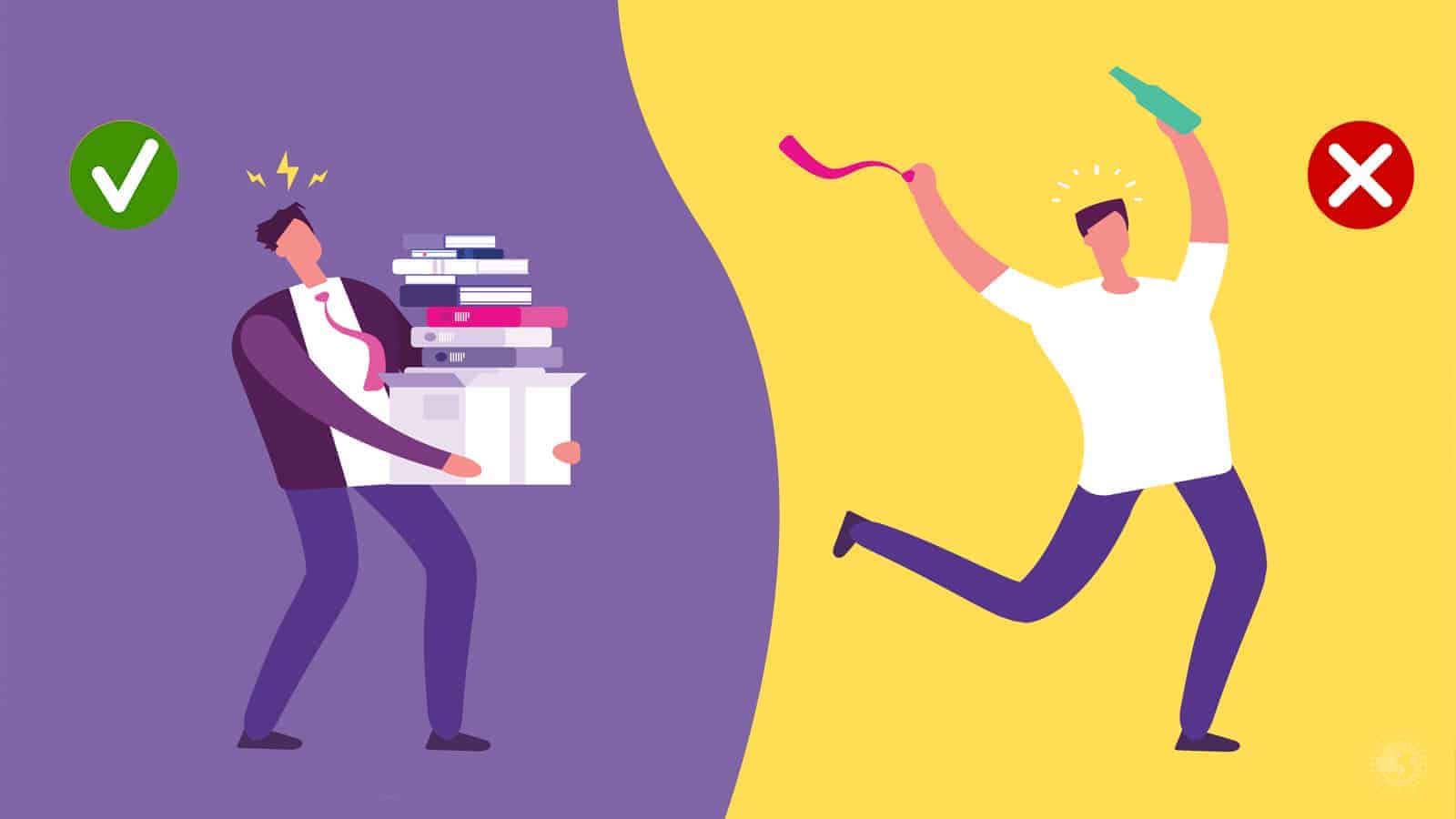Stress is a hot topic among the mental health conscious. It seems like everyone has one opinion or another regarding the best way to manage or handle stress. This is not without reason, of course. After all, everyone deals with this issue at some point in their lives, and most people hate having to put up with it.
The problem, however, is that with so many often conflicting statements about this health concern. Assumptions are made left and right, and it can be confusing to decipher which ones are assumptions worth paying attention to and which are best left behind.
14 Untrue Legends About Stress
Here are 14 assumptions about your stress that was never true.
1. Stress Is A Good Motivator
The fact that stress is a motivator can’t be denied. In the short term, it can help people meet deadlines and sharpen one’s alertness. It isn’t, however, a good one – especially in the long run. Additionally, it doesn’t offer positive effects for everyone, either.
A study conducted in 2014 showed that the more work-related worry they had to endure, the less job satisfaction they had – and there’s a good reason for that. In the long run, this health condition causes:
- Emotional challenges
- Digestive problems
- Mental issues
- Racing thoughts
- Sleep problems
- An increased risk of various physical illnesses
- Memory and thinking problems
- Heart problems
- Weight problems
2. Stress Is Obvious In Those Around You
It’s easy to assume that we’ll be able to spot the signs this concern in our loved ones. In reality, however, this isn’t always the case. Instead, a study has proven that it’s easy to fake positive thinking – most symptoms are internal, and even the external ones are easy to miss.
As a result, it can be hard to realize that something is wrong. Here are some of the symptoms that you may have missed in the people around you:
- Social withdrawal from friends, family, and social events
- Mood swings
- Depression
- Excessive worrying
- Depression
- Anxiety
3. A Healthy Lifestyle Prevents Stress
There’s no doubt that leading a healthy lifestyle does wonders for your physical and mental health. After all, proper nutrition, adequate sleep, and the cortisol-reducing benefits of exercise are all important to managing your response.
All the best management in the world, however, can only treat the symptoms that result. It is still unable to truly resolve the root cause of stress – and by extension, be a long term solution.
Here are a few things you can do to prevent some of the smaller sources from cropping up in the first place:
- Turn off your phone before bed.
- Adjust your work hours to something more comfortable.
- Resolves arguments and issues as soon as possible.
- Take time to meditate and pinpoint the source of your worry.
4. Stress Requires Clear Symptoms
Many people are of the mindset that these symptoms are obvious and easy to spot. As a result, they often end up dismissing or downplaying their actual symptoms. This, however, cannot possibly be any further from the truth.
Even if you do not seem mentally stressed to your own mind, your body will still show physical signs of stress. Here are a few symptoms to watch out for:
- Constantly feeling tired or exhausted
- Feeling overwhelmed
- Anxiety
- Shortness of breath
- Disorganization
- Concentration difficulties
5. Ulcers Are Caused By Stress
If you have ever been stressed to the point that you became sick to your stomach, this will feel relatable. One’s mental and physical state are often closely related, so it’s obvious that there will be a positive correlation between stress and feeling stomach pain.
From there, it’s easy to assume that stress causes stomach ulcers – but this isn’t actually the case. Instead, here are some real facts about excessive worry and the effects it has on your digestive system:
- Peptic ulcers only happen when there is an infection from the Helicobacter pylori bacteria.
- NSAIDs and aspirin can also cause ulcers if taken long term.
- Stress can cause all sorts of stomach issues.
- GI disorders like irritable bowel syndrome are associated with stress.
6. Everyone Experiences Stress The Same Way
The human condition is incredibly multifaceted. Although it may seem similar, no two people can ever truly experience something the exact same way. By that same virtue, stress, and our experiences with it will naturally differ from person to person.
In this way, you should expect the manifestations of stress and its triggers to be unique to you and only you, even if others disagree. Here are a few potential triggers for your stress:
- Career
- Relationships
- Social interactions
- Finances
- Physical health issues
- Mental health issues
- Current events
- Familial problems
7. Stress Affects Only Mental Health
Stress is just a physiological thing, right? You wouldn’t be entirely wrong in thinking that, but that fact is our minds and our bodies are interlinked in incredibly complex ways. What affects the body often affects the mind in turn, and vice versa. Stress is no exception to the rule.
While stress is intimately correlated with the worsening (or even causation) of various mental health problems, its impact on our physical health is also undeniable. Here are some examples of unusual ailments you wouldn’t think to immediately associate with stress.
- Muscle aches
- Dizziness
- Sore throats
- Ringing ears
- Heart disease
- Nervous shakes
- Bloating
- Fatigue
8. Stress Can Cause Cancer
Stress is related to a positive increase in risk levels for all sorts of conditions – and cancer is on the list. This is why many people often develop all sorts of illnesses after a stressful life event, such as the death of a loved one.
Stress in and of itself, however, is physically incapable of causing disease. Instead, chronic, long-term stress is more likely to push someone into unhealthy coping mechanisms. Examples include:
- Overeating
- Smoking
- Drinking alcohol
- Poor diet
- Poor sleeping habits
9. You Can “Choose” To Not Be Stressed
It’s true that certain life choices and decisions may be the root cause of stress, or may induce more stress in your life. However, it is unfair and dangerous to consider stress itself as a choice that one can simply choose to not pick – especially to those with mental health issues.
In reality, stress trigger possibilities are incredibly wide and varied – and that is before taking into account how everyone responds to the resulting stress differently. Often, it just can’t be helped. Here are a few things you should do instead in response to being stressed:
- Don’t beat yourself up
- Be kind to yourself
- Take whatever choice and action are necessary and let it run its due course
- Manage or relieve yourself of stress in a safe and healthy manner.
 10. Stress Causes Gray Hair
10. Stress Causes Gray Hair
It’s a common, well-known myth that being stressed causes our hair to turn gray. In fact, you may have had someone claim it happened to them, or you may have experienced such a thing yourself.
Practicing positive thinking, however, won’t actually combat graying hair. In reality, studies have suggested that stress may not affect the development of gray hair at all. Instead, here are a few possibilities that may be the true cause:
- Age
- Genetic predisposition
- Vitamin deficiency
- Vitiligo
- Cigarette smoking
- Heart disease
- Alopecia areata (a hair loss condition)
- Low bone mass
- Tumor growth
11. Alcohol Can Reduce Stress
A common stereotype we see everywhere (and perhaps even indulge in) is stressed people unwinding and relaxing with a glass of wine at the end of a hard day.
In reality, however, research has shown that downing a vodka tonic at home or at the bar won’t actually resolve anything- any benefits it offers are only temporary. Instead, here are a few possibilities as to what will happen if you do have a stiff drink after a stressful day:
- You may become more depressed due to the fact that alcohol is a depressant.
- Stress may actually make the drink less pleasant to enjoy.
- Your stressful or negative feelings may be prolonged instead.
12. Popular Stress Management Techniques Are The Most Effective
There are plenty of stress reduction techniques that can be found everywhere – from pop psychology articles and magazine articles to doctors and actual psychiatrists. The truth and reality are, however, that there is no one true, surefire method to manage one’s stress.
Instead, everyone’s situations, lives, and reactions are different – and appropriately, so are our stress management needs. Here are a few tips on what you can do to instead:
- Never take someone’s word for it – test those methods personally and note its effectiveness yourself.
- Consult various self-help books, instead of sticking to just one source.
- Consider creating your own stress-management program with techniques you know work for you.
13. Ignoring Stress Makes It Go Away
It’s incredibly tempting to take the “out of sight, out of mind” approach. Psychologists have proven, however, that this doesn’t help matters. Instead, trying to compartmentalize stress directly harms your physical health, and puts you at an increased risk of all sorts ailments.
Here are a few ailments you’ll be at an increased risk for:
- Weight gain
- Heart disease
- Cognitive impairment
- Sleep problems
- Mood disorders
- Reproductive problems
- Gastrointestinal issues
14. You Only Need To Address Serious Stress Symptoms
With just how much we have on our plate, it’s tempting to assume that we only really need to deal with the bigger issues that start cropping up. In actuality, any symptoms need to be addressed as soon as possible, as it affects the entire body.
This is because this health concern can become chronic very quickly and easily – which is an issue since stress and the hormones it produces can create a pretty significant physical impact. Here are some of the things research has shown that these hormones can affect:
- Short and long term memory
- Immune system health
- Gastrointestinal system health
- Cardiovascular system health
- Endocrine system health
- Mental cognition
- Learning capabilities
- Emotional health
- Mental health
 Final Thoughts On Some Assumptions About Stress That Were Never True
Final Thoughts On Some Assumptions About Stress That Were Never True
For most, this response is a part of life. While most individuals who provide questionable information regarding this health concern are only trying to help, the fact remains that this misinformation can be harmful.
Stress can affect some more severely than others, but the bottom line is that we still have much to learn about the topic. Until then, make sure you’re double-checking the facts of what you discover against credible research!



















